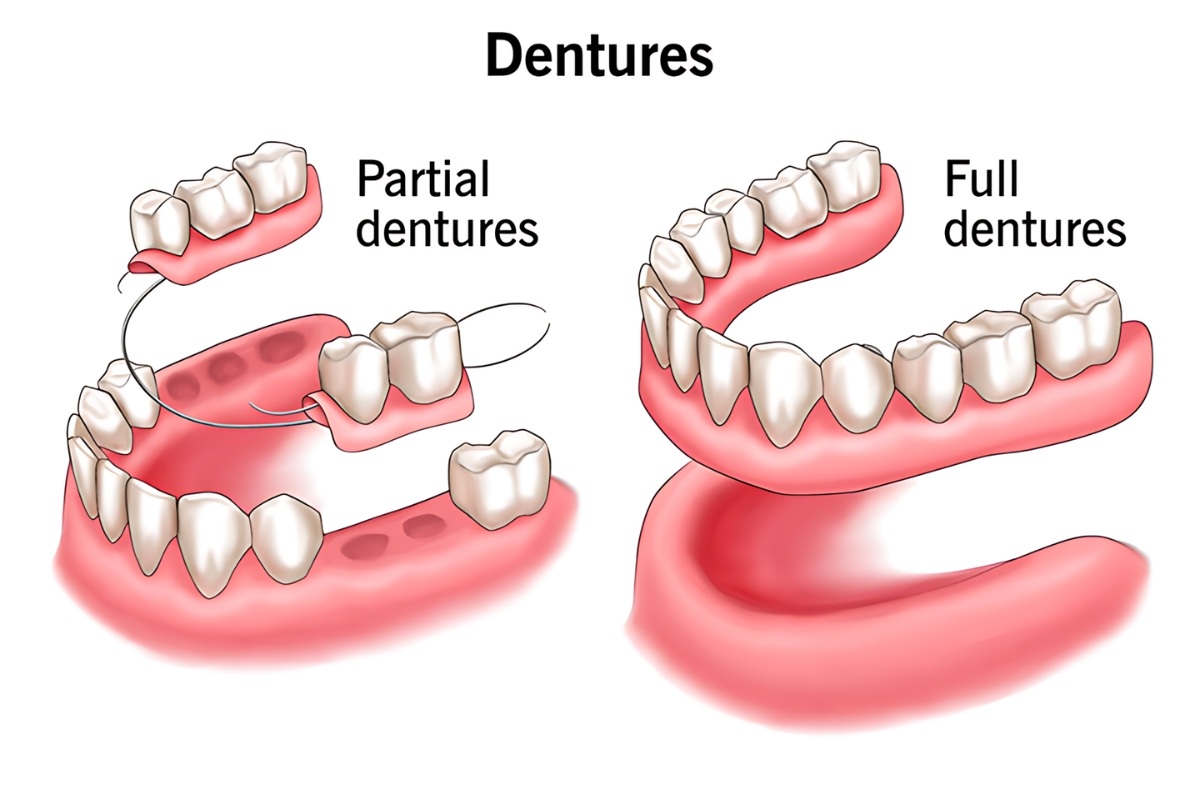
Have you ever wondered about the difference between partial dentures and complete dentures? Well, wonder no more. Let’s dive into the world of dentures and uncover what makes them unique.
What Are Dentures?
First things first, what exactly are dentures? Dentures are removable replacements for missing teeth that can be taken out and reinserted into your mouth. They’re made to resemble your natural teeth and gums to restore your smile and improve your ability to chew and speak.
Partial Dentures: Filling in the Gaps
Partial dentures are like puzzle pieces that fill in the gaps left by missing teeth. They’re designed for people who have some natural teeth remaining. The replacement teeth on these dentures in SW Calgary are often affixed to a base that is gum- or pink-colored, and they are held in place in your mouth by a metal framework.
Imagine your mouth is a jigsaw puzzle, and some pieces are missing. Partial dentures are the missing pieces that fit snugly into your mouth to complete the puzzle. They help keep your remaining teeth from shifting and support your cheeks and lips.
Complete Dentures: A Full Set
Now, let’s talk about complete dentures. As the name suggests, complete dentures in Calgary are a full set of artificial teeth and gums that replace all your natural teeth. They’re used when you’ve lost all your teeth in either your upper or lower jaw, or both.
Complete dentures come in two types: conventional and immediate. Conventional dentures are made after your teeth have been removed and your gums have begun to heal. On the other hand, immediate dentures are made in advance and can be worn right after your teeth are removed. However, they may require adjustments as your gums heal and shrink.
Spotting the Difference
Now that we know what partial and complete dentures are, let’s compare them:
- Number of Teeth: Partial dentures replace only some missing teeth, while complete dentures replace all of the natural teeth in one or both jaws.
- Usage: Partial dentures are used when some natural teeth remain, while complete dentures are used when all natural teeth are missing.
- Fit: Partial dentures rely on clasps or attachments to hold onto the remaining natural teeth, while complete dentures rely on suction and the shape of your gums to stay in place.
- Materials: Partial dentures near you often have a metal framework for support, while complete dentures are usually made of acrylic resin.
- Comfort: Partial dentures might feel more comfortable initially since they don’t cover the entire mouth, while complete dentures may take some time to get used to as they cover the whole of the upper or lower jaw.
Taking Care of Your Dentures
Whether you have partial or complete dentures, it’s essential to take good care of them:
- Clean them daily: Just like natural teeth, dentures need to be brushed daily to remove food particles and plaque.
- Handle them with care: Dentures can be delicate, so handle them gently to avoid damage.
- Soak them overnight: Store your dentures in water or a denture-cleaning solution overnight to keep them moist and maintain their shape.
- Visit your dentist regularly: Regular check-ups with your SW Calgary Dentist are crucial to ensure your dentures fit properly and your oral health is in good condition.
Final Words
So, is there a difference between partial dentures and complete dentures? Partial dentures fill in the gaps left by missing teeth, while full dentures replace all of your natural teeth. Whether you need partial or complete dentures depends on how many natural teeth you have left. So, if you ever need dentures, don’t hesitate to speak with your dentist near you.
With this knowledge, you can now understand the difference between partial and complete dentures. Keep smiling brightly, and take care of those pearly whites! Atlas Dental Centre excels in crafting partial and complete dentures, ensuring personalized solutions to restore smiles and improve oral health. Schedule a consultation today to discuss the best denture options for you and get back to smiling brightly!
